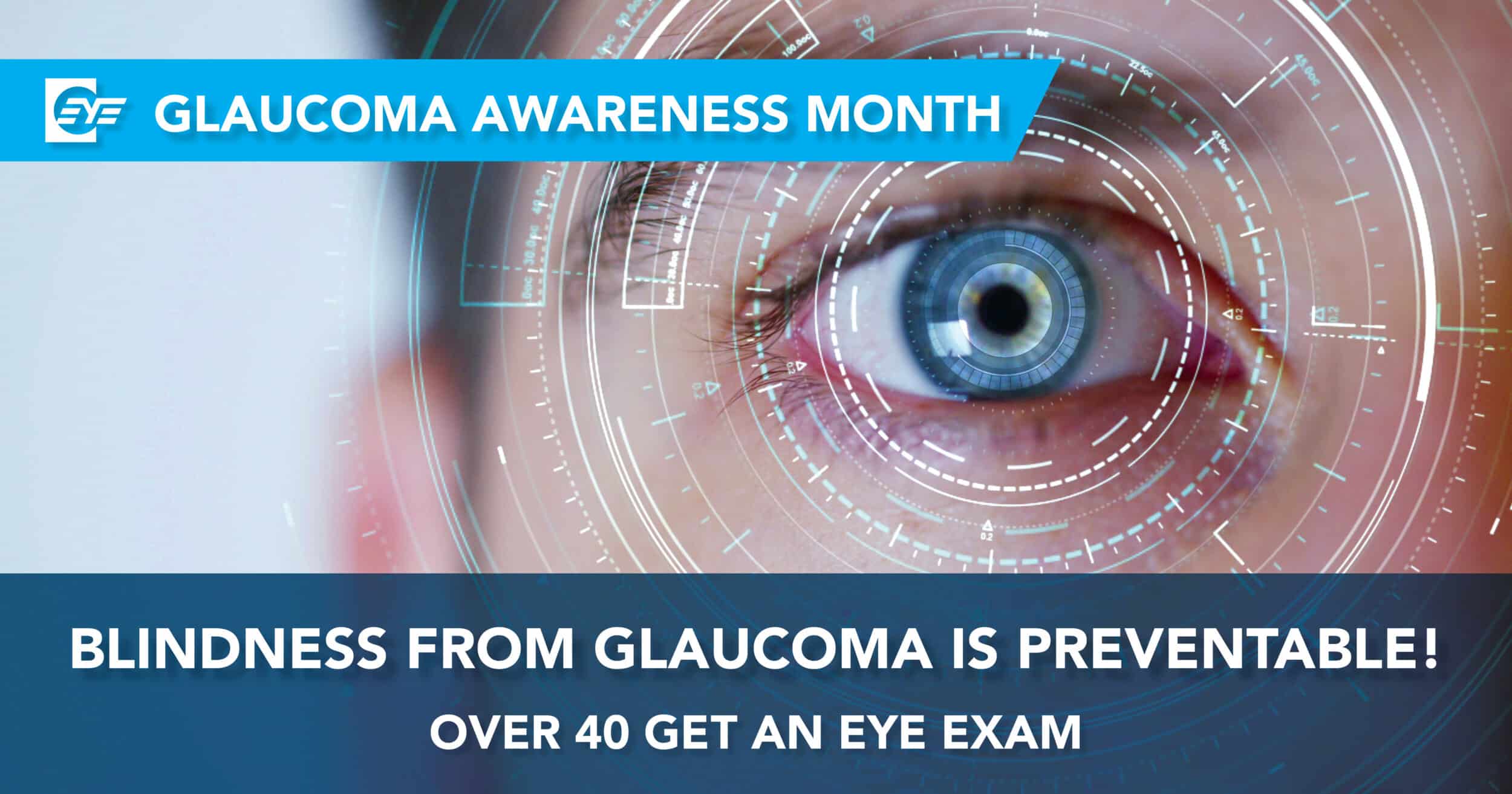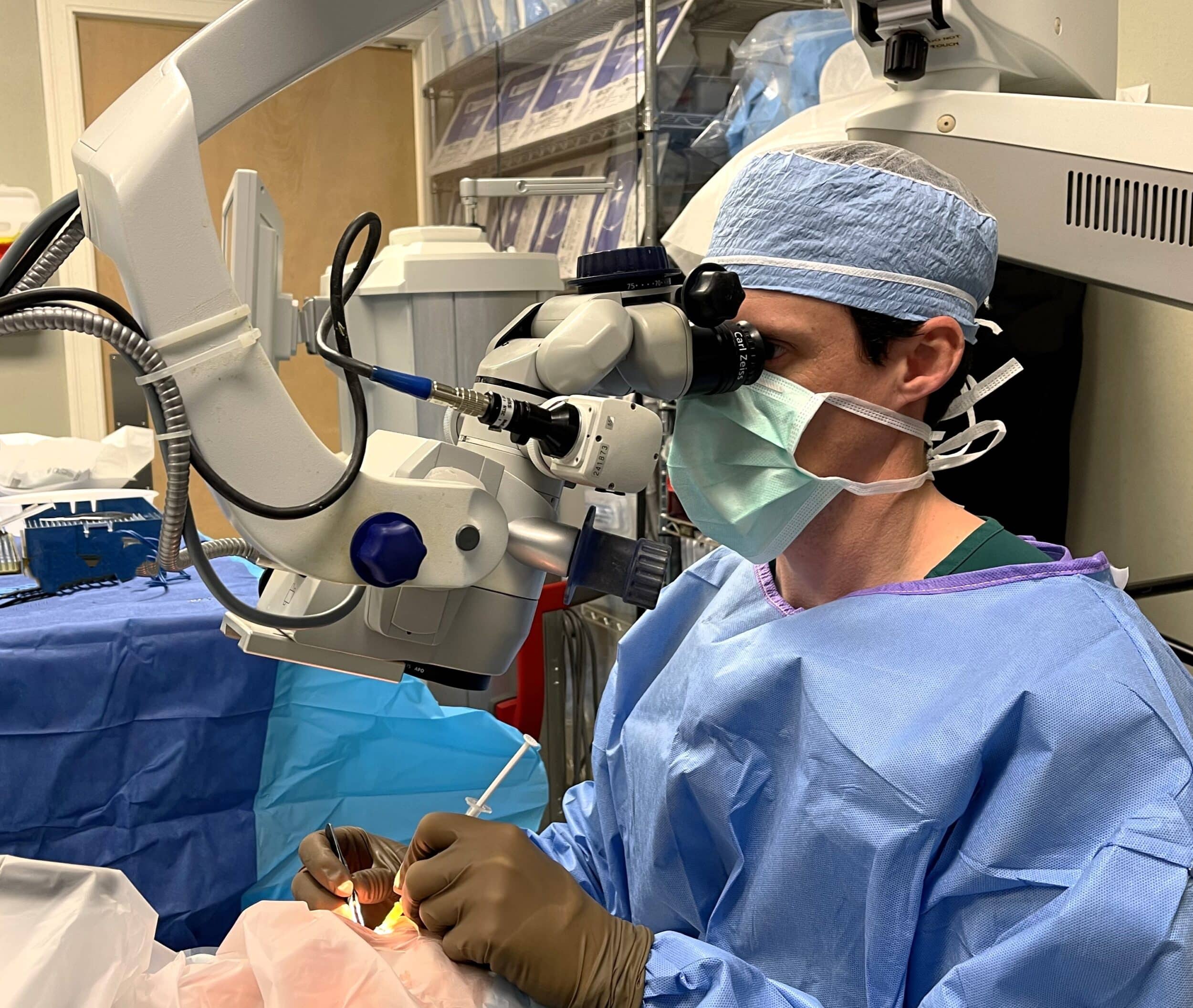
What You Need to Know About Glaucoma, the ‘Silent’ Eye Disease
Our bodies have an amazing way of letting us know when we’re sick or injured. Even so, some health conditions can “fly under the radar,” so to speak: By the time you begin to sense something’s wrong, permanent harm may have already occurred.
Glaucoma, a leading cause of blindness, falls into this category. Because of its stealthy nature, only half of the estimated 3 million Americans afflicted with this serious eye disease know they have it.
Because of the potential threat to eyesight posed by glaucoma, eye care providers across the country are joining together this January in recognition of National Glaucoma Awareness Month. Hattiesburg Eye Clinic is also part of this effort, alerting South Mississippi to the hidden dangers of glaucoma, and what can be done to overcome it.
“Glaucoma is a disease of the optic nerve in the back of the eye, which becomes damaged over time due to increased eye fluid pressure,” says Dr. Adam Quinn, Hattiesburg Eye Clinic’s Glaucoma Specialist and the only full-time, fellowship trained glaucoma specialist in South Mississippi. “If not diagnosed and treated, it can result in permanent vision loss or blindness.”

In the most common form of the disease, primary open angle glaucoma, this increased pressure occurs because the eye’s natural drainage system can’t adequately remove excess fluid. Most people won’t notice this increased pressure, so it takes some form of screening to detect it.
“The earlier we can detect increased eye pressure, the better the chance that person has of not losing any vision,” says Dr. Quinn. “We have a number of screening tools available that can help us get ahead of the condition if it’s present.”
This pressure measurement is a part of any routine eye exam. Dr. Quinn recommends everyone undergo such an exam annually beginning around age 40 or 45. But someone with a risk factor for glaucoma may want to begin having their eye pressure checked earlier in life.
“Besides age, the main risk factors are a family history of glaucoma and genetics,” says Dr. Quinn. “If someone in your family has had glaucoma, it’s important to have your eye pressure checked earlier than middle age.” This goes as well for patients of African descent, who also have a heightened risk for the disease.
If you are diagnosed with elevated eye pressure, your physician may take steps to reduce it. The most common way is with daily medicated eye drops.
“Medication does a good job in keeping eye pressure in check, but it’s a lifetime commitment,” says Dr. Quinn. “Compliance—how often patients will apply those drops on a daily basis—is certainly an issue that can have a long-term effect on their prognosis.”
To address this and other limitations of eye drops (including eye irritations caused by prolonged use), Dr. Quinn says there have been advancements in medication delivery.
“We’re seeing a lot of progress with other technologies that can directly deliver the medication to the eye without the need for drops,” says Dr. Quinn. “These include a dissolvable pellet or a reservoir placed in the eye that slowly releases medicine over time.”
Dr. Quinn also says new devices and surgical techniques to improve eye fluid drainage are coming on the scene. “The advantage with these new developments is that they are less invasive, offer quicker visual recovery, and have less risk of complications.”
In other words, there’s more that can be done today to reduce the threat of blindness posed by glaucoma than ever before. But Dr. Quinn says that expectation comes with a major condition—if signs of the disease are detected in time.
“Any damage caused by glaucoma is permanent and irreversible. The best strategy, then, is to prevent damage through early detection and proactive measures to normalize eye pressure. To that end we advise all adults, especially those at high risk for glaucoma, to have their eye pressure checked regularly.”
Dr. Quinn is the only full-time, fellowship trained glaucoma specialist in South Mississippi and you can learn more about treatment options here - our website. To find out how Hattiesburg Eye Clinic can improve your vision health, call 601-268-5910 (or toll-free 800-624-8254) or schedule a consultation with us at www.hattiesburgeyeclinic.com/contact-us/


